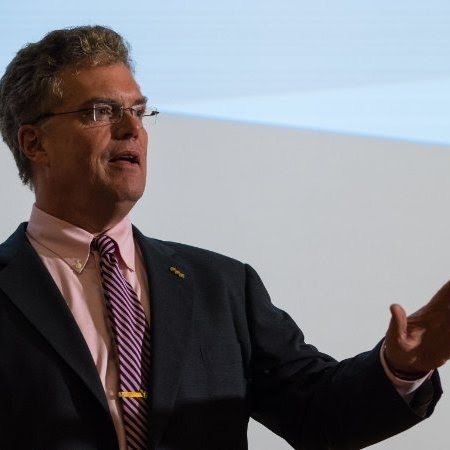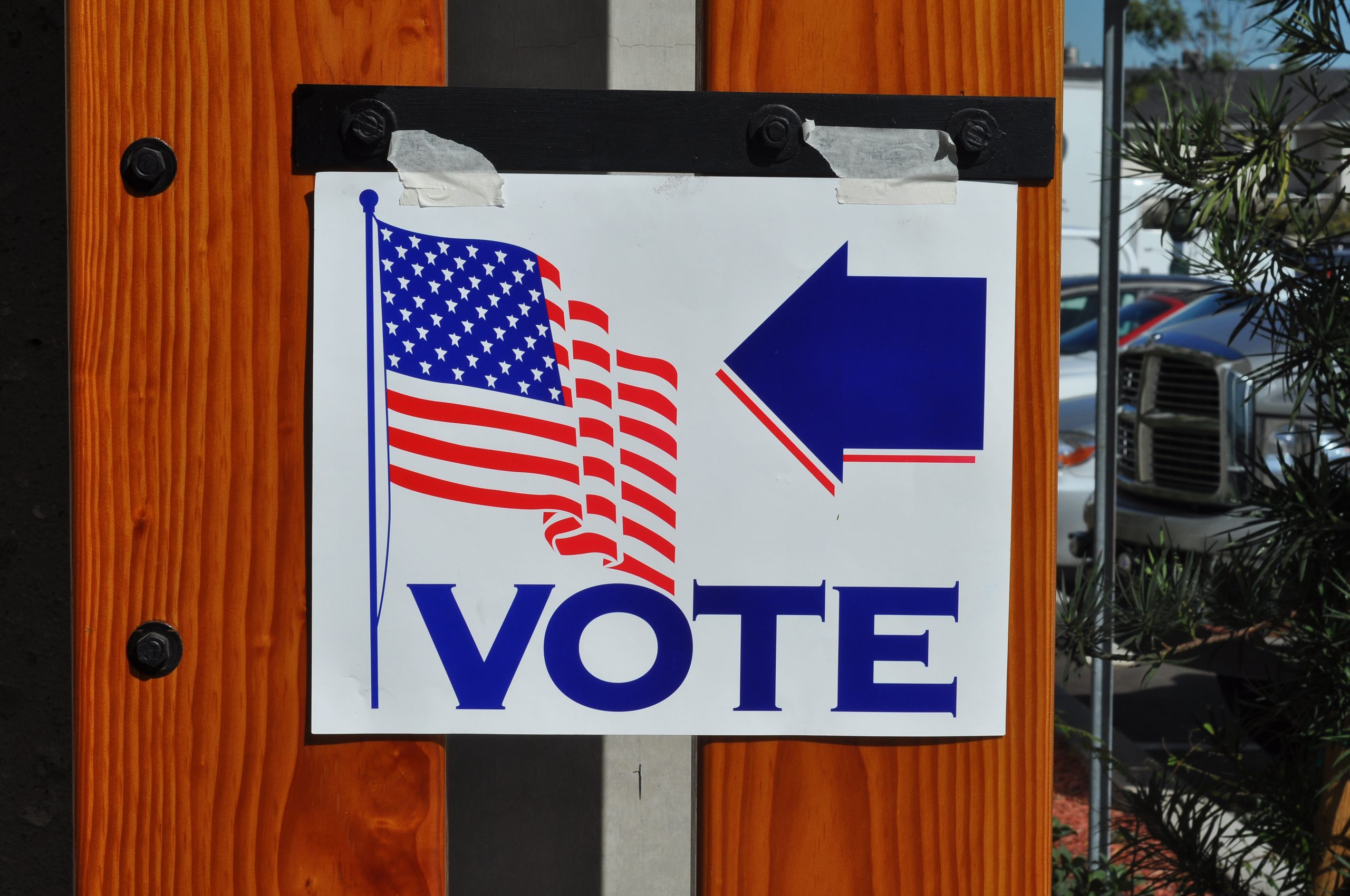
Michael Munger
Economist
Duke University
Michael Curtis Munger is an economist and a former director of undergraduate studies, political science, public policy, and economics department at Duke University. He is a prolific writer, and his book “Analyzing Policy: Choices, Conflicts, and Practices” is now a standard work in the field of policy analysis. Also, he was the Libertarian candidate for Governor of North Carolina in 2008.
After graduating from the University of Washington, Munger worked as a staff economist at the Federal Trade Commission. His first teaching job was in the Economics Department at Dartmouth College, followed by appointments in the Political Science Department at the University of Texas at Austin (1986-1990) and the University of North Carolina at Chapel Hill (1990-1997). At UNC, he directed the MPA Program, which trains public service professionals, especially in city and county management. He moved to Duke in 1997 and was Chair of the Political Science Department from 2000 through 2010.
In addition to more than 200 articles and papers published in professional journals and edited volumes, Prof. Munger has written seven books, three of them in collaboration with the late Dr. Melvin Hinich. Munger’s recent books include “Choosing in Groups” and “The Thing Itself.” His research interests include the study of the morality of exchange and the working of the new Middleman Economy.
Michael holds a B.A. in economics from Davidson Colledge, an M.A, and Ph.D. in economics from Washington University in St. Louris.
Blog Posts

Congestion tax in Manhattan: Readers speak!
March 9, 2018
|Uncategorized
Last month, I wrote a post that asked whether Manhattan should tax ride-shares, tax all vehicles, do something else, or do nothing at all. And you had some ideas about that. Below, I have tried to combine your answers (I got nearly 30) into a manageable set of categories. Responses were about evenly split among Do Nothing, Impose General Congestion Tax, and Impose Taxes on Ride-Shares. To save space, and avoid repetition, I chose some of the most representative of each group, edited them very lightly, and combined them to make what I print below as an illustration of a general view. That means

Does Manhattan need a congestion tax on Uber?
January 10, 2018
|Basic Economics
I carpool with a friend; one day, he called to say his car had broken down, and asked if I could pick him up. That was a busy day for me, so I offered what I thought was a reasonable solution: he should take Uber to my house, and I’d pay for it. He objected: “That’s too expensive! You should just come pick me up.” Wrong. For an economist, the expense of an activity is the sum of the opportunity costs of all the resources expended in engaging in that activity. That means that the cash “price” may be a small part of the true cost. Taking an Uber to my house would cost $15. If I drove

Tear down those statues
December 14, 2017
|History
I have tried to avoid saying much about the “Confederate statues” kerfuffle. That’s partly because the issue is more complicated than it’s often made out to be. But it’s also because I was on the wrong side, at least when I was a proud Southern teenager growing up in rural central Florida. I was leader of my Boy Scout Troop, and we flew two flags from the posts of the leadership tent. One US flag, one Confederate battle flag. Why? If you had asked me then I would have said it reflected the dual character of “our” citizenship: Loyalty to the nation (American), and recognition

Truthiness and the origins of "fake news"
November 15, 2017
|Uncategorized
Ten years ago this January I published an article about “truthiness.” The word comes from the The Colbert Report on October 17, 2005. Colbert did a segment called “The Wørd,” and “Truthiness” was the guest of honor. We tend to think of public debates, and to some extent even voter choices in elections, as distinguishing between truth and error. But Colbert’s act illustrated that this distinction was false, or at least incomplete. He proposed a neologism: “truthiness.” It caught on and became the American Dialect Society’s 2005 word of the year: Truthiness (noun):

3 reasons why the NRA is so powerful
October 16, 2017
|Lobbying & Special Interests
Why is the National Rifle Association such a powerful organization? The reason is that in politics, small but organized groups win.Politics in Washington is about concentrating and focusing power. Large groups have trouble doing that, but small groups focus power very well. The reason is that effective political groups form if individuals think that they benefit by participating. Social scientists call this the free-rider problem.Imagine you belong to a club or fraternity. You have a party. People promise to show up the next day to help clean the house. The free-rider problem is that everyone likes

Looking at randomness but seeing conspiracies
October 10, 2017
|Uncategorized
We see patterns where none exist. It’s what humans do; in fact, it’s what animals do. Mark Twain noticed this, and had a pithy summary. We should be careful to get out of an experience only the wisdom that is in it — and stop there; lest we be like the cat that sits down on a hot stove-lid. She will never sit down on a hot stove-lid again — and that is well; but also she will never sit down on a cold one any more. The wary cat has a theory of the world: Stove burns you. Stay away from stove.Of course, only hot stoves cause burns, so this is not a good theory. But consider two cats: Cat

Permissionless innovation: The fuzzy idea that rules our lives
September 19, 2017
|Economics
People sometimes ask me, “What is the most important concept in political economy?” The answer is easy, but subtle: permissionless innovation, a strong presumption in favor of allowing experimentation with new technologies and with new business platforms that use those technologies. A lot has been written about why this vague concept is so powerful (my own go-to source is Adam Theirer’s Permissionless Innovation). It’s at the core of what Friedrich Schiller, the German philosopher and poet, wrote about in a letter to a friend in 1793 where he describes the beauty of the “Englische

Why a Canadian city tore down the staircase its residents had always wanted to build
August 29, 2017
|Uncategorized
Toronto city officials recently threatened a man with fines for building an unlicensed staircase in a local park. Then they tore down his staircase, which had cost him $550 to build, and replaced it with one that cost $15,000.Now, there’s a lot going on in the world. So you’ll be forgiven if you missed these events in Canada. But there’s a lesson to be gained here about why government workers do the seemingly strange things they do.The brief version of the story goes like this. A lovely section of wooded Tom Riley Park, right along Mimico Creek in Toronto, had a steep, rocky, muddy slope.

No, corporations are not "people." But the First Amendment still applies.
July 5, 2017
|Uncategorized
A few weeks ago, I was on the toxic cesspool that Twitter has become, and got a reply to one of my Tweets: “You libertarians need to realize corporations=/=people if you want people to take you seriously.” And then the strangest thing happened: a substantive, polite conversation.I replied that no libertarian I know would defend the position that corporations are people. My interlocutor replied, saying s/he thought that was a standard libertarian position. No libertarians I know would defend the position that corporations are people.I said, no, although in fact libertarians would argue for

Why we can’t break up with our stuff — yet
June 19, 2017
|Basic Economics
Fifty years from now, people will look back on the turn of the century and wonder about us. They will wonder why we were so wasteful, so selfish. Why we had closets, garages, and rental storage units, all under lock and key so we could keep other people from using the stuff that we weren’t using, either. I can’t brag that I’m not part of the problem. I have a shiny, black BMW 330i with a six-speed transmission. The BMW has its own special shrine, with a door that magically — well, electronically — opens when I approach. My car takes up quite a bit of space. In fact, it “lives” better,

Economist Jokes: A Typology
May 12, 2017
|Basic Economics
Mark Twain said, in Pudd'nhead Wilson's New Calendar, that “Man is the only animal that blushes. Or needs to.” Our propensity to tell, or enjoy, jokes seems to parallel this need to recognize that we don’t always live up to our inflated sense of our own importance. Problems of inflation are often studied by economists. Having myself been catechized in that church, I am still a bit sensitive to the particular branch of humor called “economist jokes.” You’ve probably heard them, often along the lines of “Economists were invented to make the weatherman feel better about his predictions.” I’ve

In praise of safe spaces on campus
March 9, 2017
|Free Speech
I want to come out in favor of safe spaces. Not everywhere, or for all purposes, but in general I think there should be a strong presumption in favor of limited and exclusive safe spaces for any group that wants to establish one. Of course, the group would need to have the ability and legal right to use the space and exclude “others,” but often this would involve nothing more than the ability to reserve a public space that has a door that shuts. My main claim is that “safe spaces” for students must include ideologically selected groups, just as it includes social groups such as fraternities

America has a bad case of “Whataboutism”
February 18, 2017
|Democracy and Voting
A number of folks I respect have gone full Never Trump, and a few have come out in support of the administration, to varying degrees. But quite a few of “us” have rejected full-on support or opposition, lapsing into what I’ve come to think of as “But What About....?”-ism. This phenomenon was pointed out by Washington Post journalist Radley Balko, who said in January: Maybe at this point, stuff like pointing and laughing at liberal/media hypocrisy, crowing about political correctness, invoking “Obama/Hillary did it too” arguments, mocking social justice groups who fear Trump—maybe

Car crashes and hockey fights — how safety mandates can make life more dangerous
January 16, 2017
|Basic Economics
Suppose you want to reduce deaths in automobile accidents. Should you make cars safer? Seems like a no-brainer, right? But consider: suppose instead of an airbag in your steering column, we put a six-inch dagger. If you hit something hard head-on, you get the dagger through your sternum. That jerk tail-gating you on I-95 would give you more space if his BMW featured an ice pick instead of a soft, comfy airbag. In fact, economist Sam Peltzman has found that while real mandated safety features in cars reduce the chance that a person in a car will be hurt in an accident, drivers then behave more recklessly,

Getting prices right for the Dakota Access Pipeline
November 24, 2016
|Environmentalism
The protests against the Dakota Access Pipeline (DAPL) have been enormous, and the police have responded with a total of almost 500 arrests to date. Can we use prices to figure out if the protesters here are right? Should we be investing in green energy sources instead? Is DAPL’s cost to the Standing Rock Sioux too high? Prices vs “Peak Oil” One great benefit of markets is that prices tell us what to do. Not through orders, which often don’t work, but through incentives. If I have something that someone else values more than I do, I can sell that thing, and we are both better off. The exploration,

The welfare state is a (bad) polygamist
October 20, 2016
|Poverty & Inequality
Polygamy is an ancient practice, rooted in patriarchy, that effectively enslaved women in societies where females had no status and little power. Restrained by their circumstances, women were better off "sharing" husbands who had power and resources than living alone or taking as a partner a man who could barely even feed himself. Fortunately, those days are long behind us. Or are they? In many countries, including the U.S., the state has become a polygamist, and a jealous one at that. Bound by poverty and dutifully “supported” by welfare, women find themselves trapped in a vice. If they try

Brexit Illustrates Why Voting Is One of the Worst Ways to Make Decisions
August 1, 2016
|Voting
Nearly 25 years ago, two scholars—Geoffrey Brennan and Loren Lomasky—published a book that was proved prescient by the recent “Brexit” vote. The book was called Democracy and Decision, and one of its central theses was that “democracy” (if you mean majority rule decisions) is simply not up to the task of making good choices for large groups of citizens. Now, to be clear, I’m not trying to say that Brexit itself was a bad decision. My point is about majority rule and voting. In this post, I’m going to argue that voting was not the best way to represent the will of the people when

Government Goes into Debt to Help the Poor, Ends up Stealing from Them Instead
June 16, 2016
|Gov't Debt & Spending
We all know government debt is bad for the young. But it’s also bad for the poor. Hurting the Kids to Help the Elderly The well-known political philosopher Loren Lomasky recently reminded us of why debt is bad for the young. We might be able to justify spending now, and borrowing to finance the spending, if we were primarily building roads and creating infrastructure (even then it would be debatable, of course). But that’s not what we’re doing. We are using debt to pay for old folks (yes, like me! Thanks, kids!) to live by the inflated standard we imagined we deserved. Public employee pensions,

Why You Can’t Just “Reject” Capitalism
May 15, 2016
|Free Markets and Capitalism
The Washington Post recently blared the headline: “Majority of Millennials Now Reject Capitalism, Poll Shows.” I suspect, perhaps unfairly, that this is a matter of some pleasure for the Post’s editorial board. But if you actually read the article, a different picture emerges. In fact, 42 percent of the millennials polled say they support capitalism. In comparison, only 33 percent say they support socialism. So an equally accurate, and less tendentious, headline would have been: “Millennials Favor Capitalism over Socialism by Wide Margin.” At a minimum, by the logic of “rejecting capitalism,”

How White Privilege Could Explain Everything About Donald Trump's Success
April 18, 2016
|Poverty & Inequality
There was an amazing, squirmingly funny Saturday Night Live skit (Season 10, 1984), with Eddie Murphy, called “White Like Me.” In it, the Eddy Murphy character dresses in “white face,” and travels around New York City. He finds that the disparity in racial treatment is even larger than he expected—and it takes the form not so much of mistreatment of blacks, but privileged treatment reserved for whites. Given that the “mockumentary” was done more than 30 years ago, you have to give Mr. Murphy some credit in seeing the turn that debates over race and privilege would take in the future.* Check

Should You Hire a Private Bodyguard?
March 18, 2016
|Uncategorized
Editor's note: This blog post contains descriptions of rape and sexual assault. Reader's discretion is advised. I lived in Erlangen, Germany for much of 2009, getting around on a bicycle. After the big April beer festival, the “Bergkirchweih,” my lock was cut and my bike was thrown down a hill and set on fire (it may have been set on fire first, it was hard to tell). So I called the police. The two policemen (one spoke English, fortunately) spent about 30 seconds total “investigating.” They showed up, I told them what happened, and the English-speaking cop said, “You need a better

We Can Never Run Out of Anything
February 5, 2016
|Uncategorized
Somewhere along about 2005 I started hearing about “Peak _____,” where the blank is some resource such as oil, water, food, and so on. The pique about “Peak” was based on the notion that “we” (and I’m not sure what that means) had reached the point of maximum production, and that the future was a bleak choice between bad alternatives. Mankind’s profligate use of this nonrenewable resource was supposed to presage an era of shortage and shrinking options. Now, I was familiar with the famous “bet” between Julian Simon and apocalyptic-professional Paul Ehrlich, from the 1980s, in

The First Rule of Wing-Walking
January 25, 2016
|Uncategorized
Wing-walking was the practice of getting out of the cockpit of a biplane (while someone else was flying the thing) and staggering along the wing holding onto struts or wires. It was a thrill show for onlookers at air shows and barnstorming events in the 1920s and 1930s in the U.S. But for the wing-walker him (and often her) self, the experience was terrifying. It was tempting just to freeze up and hold on. If you were going to move, you had to be careful to make sure you were holding something substantial enough to take your weight in the face of wind blowing nearly 100 miles

We should DO something!
December 7, 2015
|Government
Shamans knew they could bend the credulous to their will (and make a boatload of money) if the shaman could predict something like a storm, or an eclipse. “This very evening, the Night Wolf will devour the Moon Virgin! But if you pay me many coins of silver, I will force Night Wolf to cough the Moon Virgin back up, unharmed!” Humorist and author P.J. O’Rourke used a version of that story over 25 years ago, in All the Trouble in the World, to describe fundraising letters from Greenpeace to help solve global warming. But everyone does it now: just substitute global warming, or terrorism,

Every Flaw in Consumers Is Worse in Voters
October 29, 2015
|Economics
I have been making a mistake for most of my life. See, I’m an economist, and one of the things that attracted me to economics is the notion of the “ideal economy.” Of course, there are valid objections to the use of markets. There are people who cheat and commit fraud, and there are problems with information and market power and externalities. Sometime consumers make mistakes. In fact, some of those mistakes, as my friend and Duke colleague Dan Ariely is fond of telling me, raise questions about the very nature of our “model” of consumption. In his book Predictably Irrational, Dan makes
Liberty, delivered to your inbox!
Want to know more about Student For Liberty’s impact, new initiatives, and other efforts made to advance liberty around the world?
Sign up for our email newsletter to stay connected.
Subscribe Now

